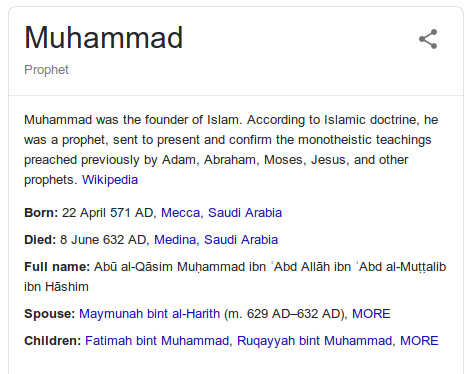Last Updated on July 27, 2023
Prophet Muhammad, the central figure of Islam, holds a significant place in Islamic culture. One aspect that adds to his importance is his birthdate. Understanding the historical background of his birth and the controversies surrounding its exact date is crucial in comprehending the reverence attached to this event. The Islamic calendar plays a vital role in determining dates, including Prophet Muhammad’s birthdate. However, different opinions and theories exist regarding the exact day and month of his birth. Despite these controversies, the celebration of Prophet Muhammad’s birthdate remains an integral part of Islamic traditions. This article explores the impact of his teachings and legacy on the Islamic world and the global recognition and reverence for his birthdate. Ultimately, Prophet Muhammad’s birthdate continues to hold immense importance in Islamic culture, serving as a reminder of his profound impact on the world.
The Significance of Prophet Muhammad’s Birthdate in Islamic Culture
In Islamic culture, the birthdate of Prophet Muhammad holds immense significance. It is considered a momentous occasion and is celebrated with great reverence and joy. Here are some key points highlighting the importance of Prophet Muhammad’s birthdate:
- Prophet Muhammad is considered the last and final messenger of Allah in Islam.
- His birthdate marks the beginning of a new era, known as the Islamic calendar.
- The teachings and life of Prophet Muhammad are the foundation of Islamic faith and serve as a guide for Muslims worldwide.
- Prophet Muhammad’s birthdate is a reminder of his profound impact on the world and his role as a spiritual leader.
- Celebrating his birthdate allows Muslims to express their love, respect, and gratitude towards Prophet Muhammad.
- It is a time for reflection, prayer, and remembrance of the teachings and values Prophet Muhammad imparted.
- Prophet Muhammad’s birthdate serves as a unifying factor for Muslims, bringing them together in celebration and devotion.
The significance of Prophet Muhammad’s birthdate in Islamic culture cannot be overstated. It is a time of spiritual renewal, unity, and gratitude for the blessings brought by his teachings.
Historical background of Prophet Muhammad’s birth
The historical background of Prophet Muhammad’s birth provides important context for understanding his life and teachings. Prophet Muhammad was born in the city of Mecca in present-day Saudi Arabia in the year 570 CE. Mecca was a bustling trading center and a hub of religious activity, with the Kaaba, a sacred shrine, at its center. Prophet Muhammad’s birth took place during a time of great social and political change in the Arabian Peninsula.
At the time of his birth, the Arabian Peninsula was characterized by tribal divisions and conflicts. The people of Mecca were primarily polytheistic, worshiping multiple gods and goddesses. However, there were also small communities of Jews and Christians in the region. Prophet Muhammad’s birth marked the beginning of a new era, as he would go on to become the final prophet of Islam and bring about significant religious and social transformations.
Understanding the historical background of Prophet Muhammad’s birth helps us appreciate the challenges he faced and the impact he had on the world. It also sheds light on the cultural and religious context in which Islam emerged and spread.
The Islamic calendar and its importance in determining dates
The Islamic calendar, also known as the Hijri calendar, is a lunar calendar that is used by Muslims worldwide. It is based on the sighting of the moon and consists of twelve lunar months. Each month begins with the sighting of the new moon, making it different from the Gregorian calendar that follows the solar year.
The Islamic calendar holds great significance in determining dates, including the birthdate of Prophet Muhammad. Muslims believe that the Hijri calendar was divinely inspired and that it marks the beginning of a new era for humanity. It is a way for Muslims to connect with their religious history and to commemorate important events.
When it comes to determining the exact date of Prophet Muhammad’s birth, the Islamic calendar plays a crucial role. Scholars and historians rely on the Hijri calendar to calculate the date based on historical records and narrations. However, due to the nature of the lunar calendar, there can be variations and controversies surrounding the exact date.
Controversies surrounding the exact date of Prophet Muhammad’s birth
When it comes to the exact date of Prophet Muhammad’s birth, there are several controversies and debates among scholars and historians. The lack of concrete historical evidence has led to different opinions and theories regarding his birthdate. Here are some of the key points:
- Some scholars believe that Prophet Muhammad was born on the 12th of Rabi’ al-Awwal, while others argue that it was the 17th of Rabi’ al-Awwal.
- The disagreement arises from variations in historical accounts and the interpretation of different sources.
- Some historians rely on the lunar calendar and astronomical calculations to determine the date, while others consider the narrations and traditions passed down through generations.
- The controversy surrounding the birthdate is not limited to the day but also extends to the year. There are differing opinions on whether Prophet Muhammad was born in the Year of the Elephant or a few years earlier.
- Despite the controversies, the majority of Muslims celebrate the birth of Prophet Muhammad on the 12th of Rabi’ al-Awwal, considering it a blessed and significant day.
While the exact date of Prophet Muhammad’s birth may remain uncertain, the reverence and respect for his teachings and legacy continue to unite Muslims around the world.
Different opinions and theories regarding Prophet Muhammad’s birthdate
There are various opinions and theories regarding the exact birthdate of Prophet Muhammad in Islamic culture. These include:
- 12th Rabi’ al-Awwal: This is the most widely accepted date among Sunni Muslims. It is believed that Prophet Muhammad was born on the 12th day of the Islamic month of Rabi’ al-Awwal.
- 17th Rabi’ al-Awwal: Some scholars argue that Prophet Muhammad was born on the 17th day of Rabi’ al-Awwal. This view is mainly held by Shia Muslims.
- 9th Rabi’ al-Awwal: Another theory suggests that Prophet Muhammad was born on the 9th day of Rabi’ al-Awwal. This view is supported by a minority of scholars.
- Other dates: There are also some scholars who propose different dates for Prophet Muhammad’s birth, such as the 2nd or 8th day of Rabi’ al-Awwal.
It is important to note that while there is no consensus on the exact date, the birth of Prophet Muhammad is universally celebrated by Muslims around the world.
The celebration of Prophet Muhammad’s birthdate in Islamic traditions
In Islamic traditions, the birthdate of Prophet Muhammad holds great significance and is celebrated with utmost reverence. This celebration is known as Mawlid al-Nabi, which translates to “Birth of the Prophet.” It is observed on the 12th day of the Islamic month of Rabi’ al-Awwal, which is believed to be the day of his birth.
During this celebration, Muslims gather in mosques and homes to recite prayers, listen to sermons, and engage in acts of charity. The day is marked with joyous festivities, including processions, feasts, and the sharing of sweets and gifts.
While the celebration of Prophet Muhammad’s birthdate is not universally practiced by all Muslims, it is widely observed in many parts of the Islamic world. The purpose of this celebration is to honor and remember the life and teachings of the Prophet, and to express gratitude for his role as the final messenger of Allah.
Overall, the celebration of Prophet Muhammad’s birthdate serves as a reminder of his profound impact on the Islamic world and continues to be an important tradition in Islamic culture.
The impact of Prophet Muhammad’s teachings and legacy on the Islamic world
Prophet Muhammad’s teachings and legacy have had a profound impact on the Islamic world. His teachings, as recorded in the Quran, form the basis of Islamic beliefs and practices. The principles of justice, compassion, and equality that he preached continue to guide Muslims in their daily lives.
Prophet Muhammad’s teachings also emphasized the importance of knowledge and education. He encouraged Muslims to seek knowledge and to constantly strive for personal and intellectual growth. This emphasis on education has played a significant role in the development of Islamic civilization, with Muslims making significant contributions to fields such as science, mathematics, and philosophy.
Furthermore, Prophet Muhammad’s legacy extends beyond the realm of religion. He was not only a spiritual leader but also a political and social reformer. His teachings on governance and social justice laid the foundation for the establishment of just and equitable societies.
The impact of Prophet Muhammad’s teachings and legacy can be seen in the spread of Islam across the globe. Today, Islam is the second-largest religion in the world, with over 1.8 billion followers. The reverence and recognition of Prophet Muhammad’s teachings continue to shape the lives of Muslims around the world, making his birthdate a significant and celebrated event in Islamic culture.
The global recognition and reverence for Prophet Muhammad’s birthdate
Prophet Muhammad’s birthdate holds immense significance not only within Islamic culture but also globally. His teachings and legacy have had a profound impact on the world, making his birthdate a symbol of unity and inspiration for millions of people.
Throughout history, Prophet Muhammad’s teachings have spread far and wide, reaching every corner of the globe. His message of peace, justice, and compassion resonates with people from different cultures and backgrounds, transcending geographical boundaries.
Today, Prophet Muhammad’s birthdate is celebrated by Muslims worldwide as a way to honor and remember his life and teachings. The day is marked with special prayers, gatherings, and acts of charity. It serves as a reminder of the values and principles that Prophet Muhammad stood for, encouraging believers to emulate his example in their daily lives.
Furthermore, the global recognition of Prophet Muhammad’s birthdate is evident in the numerous events and conferences held in his honor. Scholars, religious leaders, and individuals from various fields come together to discuss and learn from his teachings, fostering a sense of unity and understanding among different communities.
In conclusion, Prophet Muhammad’s birthdate continues to hold immense importance in Islamic culture and is recognized and revered globally. It serves as a reminder of his profound impact on the world and inspires people to strive for peace, justice, and compassion in their own lives.
Prophet Muhammad’s Birthdate: A Timeless Reminder of His Profound Impact
Throughout this article, we have explored the significance of Prophet Muhammad’s birthdate in Islamic culture, delving into the historical background and controversies surrounding this momentous event. We have examined different opinions and theories regarding the exact date of his birth, highlighting the importance of the Islamic calendar in determining dates.
However, beyond the debates and discussions, one thing remains clear: Prophet Muhammad’s birthdate continues to hold immense importance in Islamic culture. It serves as a timeless reminder of his profound impact on the world.
Prophet Muhammad’s teachings and legacy have shaped the Islamic world, leaving an indelible mark on its history, culture, and values. His birthdate is not merely a date on the calendar; it is a symbol of inspiration, guidance, and unity for millions of Muslims worldwide.
As we conclude this article, let us reflect on the global recognition and reverence for Prophet Muhammad’s birthdate. It is a day of celebration, remembrance, and gratitude, honoring the life and teachings of a remarkable individual who continues to inspire and guide generations.
Discover the significance and controversies surrounding Prophet Muhammad’s birthdate in Islamic culture. Explore its impact and celebration.
About The Author

Alison Sowle is the typical tv guru. With a social media evangelist background, she knows how to get her message out there. However, she's also an introvert at heart and loves nothing more than writing for hours on end. She's a passionate creator who takes great joy in learning about new cultures - especially when it comes to beer!

